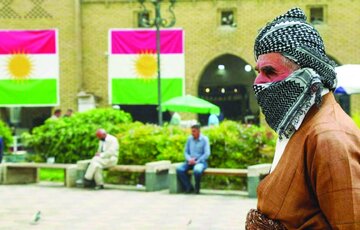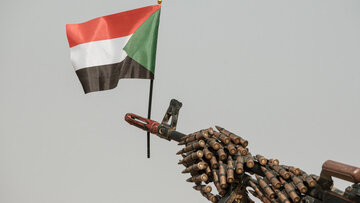(Ahlul Bayt News Agency) - In 1972, the native of Starkville, Mississippi joined the Nation of Islam as a route to black pride. When founder Elijah Muhammad died, she and most of the movement began drifting toward mainline Islam. She now attends Masjid Al-Ansar, Miami.
The resident of North Miami was a subject of the 2007 book "The Face Behind the Veil," written by Donna Gehrke, now a Sun Sentinel reporter.
Q. Why did you want to become a Muslim?
People of color in America were treated as second-class citizens. The Nation of Islam offered a different way of seeing yourself, as a person of value and dignity. That was appealing to me.
In 1974, Elijah Muhammad passed away, and we studied orthodox Islam. I read more and learned about practicing that. Now our purpose is to fulfill our obligation to God. Now we're better people, serving our fellow man.
Q. How has Islam changed your life?
It has changed every aspect: how I see people, the world, my purpose in life, how I deal with my students and children, how I deal with challenges. Islam has given me a way of handling difficulties and success. It has given me an avenue to grow and learn.
Q. How do you approach Ramadan each year?
It's an opportunity to strengthen my willpower and my relationship to God. And an opportunity to connect with myself.
I set goals. Sometimes I want to memorize a part of the Quran. Go to the Tarawih prayer at night as often as I can. Focus on remembrance of God.
Q. How have you dealt with questions from family and friends?
My father, who passed recently at 86, was a Baptist minister. He was of the mindset that as long as you were serving God, you were fine with him.
My friends are very supportive. Friends are people who support you for what you believe in. I have quite a few of them. I have Jewish and Baptist and Seventh-day Adventist friends. We may not go to the same building, but because our faith is focused on pleasing God, we're sisters. It's based on respect and love for God.
Then you have acquaintances. They may know you, but they're not necessarily concerned about your welfare. We don't spend a lot of time together.
Q. What about the image of Islam in society and in news media? Does that affect you one way or another?
Yes. When people are not educated to the facts, people will judge you by whatever is in their brain. When there's an opportunity to explain, you educate and inform. When there's not, you move on. What else can you do?
I know that people are watching. I am conscious of my obligation to God and society: my students, my colleagues, my job. I'm not going to do anything to tarnish the image of Islam. Those are the things that are important.
Like Salahuddin, Radi Ali began in the 1970s in the Nation of Islam, then left for the mainline Sunnah or traditional Islam. Like many conservative Christians and Orthodox Jews, he calls Islam not just a religion but a way of life.
Ali was raised a Baptist in Newark but now lives in Lake Worth. Owner of an import-export business, he prays at the Muslim Community of Palm Beach County, near West Palm Beach.
Q. Why did you want to become a Muslim?
A lot of African Americans started turning Muslim, [but] once I saw the Nation of Islam wasn’t really giving the Sunnah (tradition) of the Prophet Muhammad, I went to the Sunnah community.
Q. How has Islam changed your life?
A lot, from how to use the bathroom, to how to eat correct foods, to how to deal with people.
Q. How do you approach Ramadan each year?
You’re closer to your Lord all month. During the month, once you’re fasting, Satan can't touch you. You’re thinking correctly, purifying yourself. You’re supposed to read one-thirtieth of the Quran every day.
Q. How have you dealt with questions from family and friends?
They respect my religion and I respect theirs. I don’t force my religion on them and they don’t force theirs on me. And they saw I was staying out of trouble, staying clean, no smoking, no drinking, no drugs. My mother always told me, “Stick to your faith.”
/106




